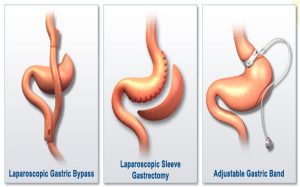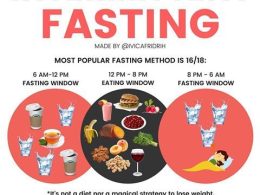Introduction
Weight loss surgery, also known as bariatric surgery, is a life-changing procedure that can lead to significant improvements in health and well-being for many individuals struggling with obesity. However, it’s essential to understand the potential risks and complications associated with weight loss surgery, especially when it comes to consuming alcohol post-surgery. In this article, we’ll delve into the risks of mixing alcohol with weight loss surgery and provide valuable insights to help you make informed decisions about your health.
Understanding Weight Loss Surgery
Before diving into the risks of alcohol consumption post-weight loss surgery, let’s first understand what weight loss surgery entails. Weight loss surgery is a surgical procedure designed to help individuals lose weight by making changes to their digestive system. There are several types of weight loss surgeries, including gastric bypass, gastric sleeve, and gastric banding, each with its own set of benefits and risks.
Types of Weight Loss Surgery:
- Gastric Bypass: This procedure involves creating a small pouch from the stomach and connecting it directly to the small intestine, bypassing a portion of the stomach and intestine.
- Gastric Sleeve: Also known as sleeve gastrectomy, this surgery involves removing a large portion of the stomach, leaving a sleeve-shaped pouch.
- Gastric Banding: This procedure involves placing a band around the upper part of the stomach to create a smaller stomach pouch, limiting the amount of food that can be consumed.

The Risks of Mixing Alcohol with Weight Loss Surgery
While weight loss surgery can lead to significant improvements in health, it’s essential to be aware of the potential risks associated with consuming alcohol post-surgery. Here are some of the key risks:
1. Increased Sensitivity to Alcohol:
After weight loss surgery, many individuals experience increased sensitivity to alcohol. This means that even small amounts of alcohol can have a more significant impact than before surgery. Factors such as changes in metabolism and a smaller stomach size contribute to this heightened sensitivity.
2. Nutritional Deficiencies:
Alcohol provides empty calories and can interfere with the body’s ability to absorb essential nutrients, such as vitamins and minerals. Following weight loss surgery, maintaining adequate nutrition is crucial for overall health and well-being. Consuming alcohol can exacerbate nutritional deficiencies and hinder weight loss efforts.

3. Risk of Addiction:
Weight loss surgery can be a catalyst for positive lifestyle changes, including adopting healthier eating habits and increasing physical activity. However, for some individuals, the emotional and psychological aspects of weight loss surgery can be challenging to navigate. Turning to alcohol as a coping mechanism can increase the risk of developing alcohol addiction or dependency.
4. Increased Risk of Complications:
Alcohol consumption post-weight loss surgery can increase the risk of complications, including gastrointestinal issues, liver damage, and metabolic disturbances. These complications can undermine the benefits of weight loss surgery and compromise overall health.
Tips for Safe Alcohol Consumption After Weight Loss Surgery
While it’s essential to be mindful of the risks associated with alcohol consumption post-weight loss surgery, it’s not necessarily off-limits. Here are some tips for safely enjoying alcohol after surgery:
1. Limit Consumption:
Moderation is key when it comes to alcohol consumption after weight loss surgery. Limit your intake to recommended guidelines and avoid binge drinking.

2. Choose Wisely:
Opt for low-calorie, low-carbohydrate alcoholic beverages, such as light beer, wine, or spirits mixed with calorie-free mixers. Avoid sugary cocktails and drinks with high alcohol content.
3. Stay Hydrated:
Alcohol can dehydrate the body, so be sure to drink plenty of water before, during, and after consuming alcohol. Staying hydrated can help minimize the risk of dehydration and other complications. Explore More About ( Pregnancy Risks)

4. Listen to Your Body:
Pay attention to how your body responds to alcohol after surgery. If you experience any discomfort or adverse reactions, refrain from consuming alcohol in the future.
5. Seek Support:
If you find yourself struggling with alcohol consumption or facing challenges in maintaining a healthy lifestyle post-surgery, don’t hesitate to seek support from healthcare professionals, support groups, or mental health counselors.
Conclusion
Weight loss surgery can be a life-changing procedure for individuals struggling with obesity, but it’s essential to understand the potential risks and complications associated with alcohol consumption post-surgery. By being aware of these risks and following the tips outlined in this article, you can make informed decisions about alcohol consumption and prioritize your health and well-being post-surgery.
Remember, your health is invaluable, and taking steps to protect it post-weight loss surgery is crucial for long-term success. If you have any concerns or questions about alcohol consumption or weight loss surgery, be sure to consult with your healthcare provider for personalized guidance and support.












